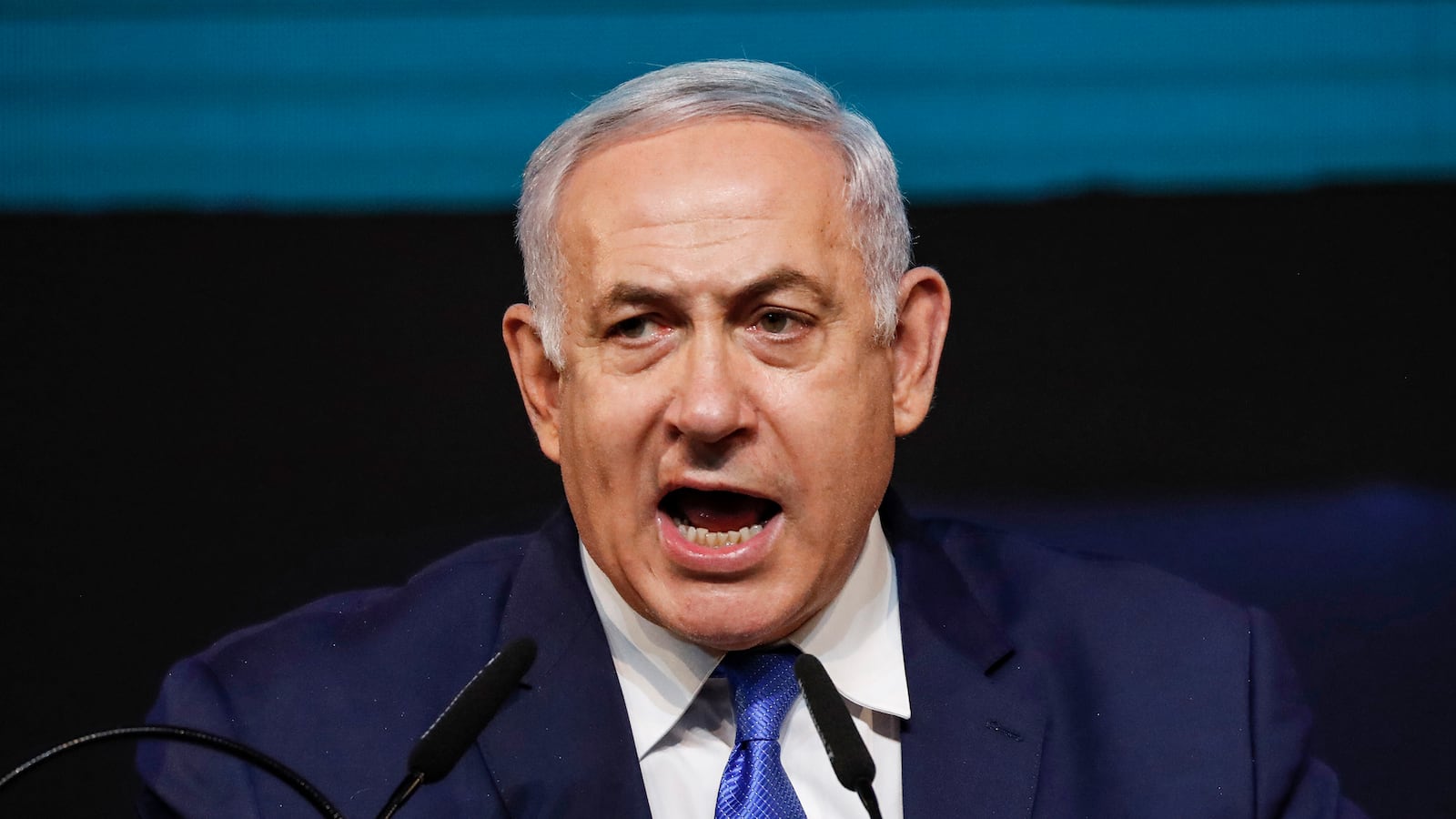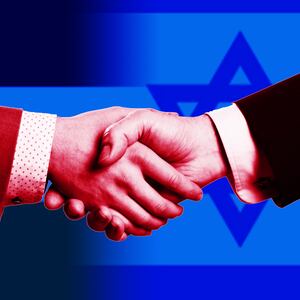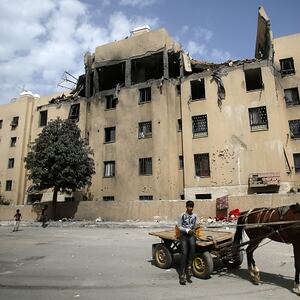TEL AVIV — Israel is now headed to an unprecedented repeat election just weeks after the last poll, and this just as one rather significant foreign visitor, Jared Kushner, arrives in Jerusalem.
While Kushner’s Israel sojourn was scheduled before this most recent domestic political crisis, his decision to go through with the trip was likely meant to send a signal, however implausible, that the Trump administration may still push ahead with the planned release of its Israeli-Palestinian peace plan next month, starting with a regional economic conference in Bahrain.
The so-called “deal of the century” has been termed “dead on arrival” by the Palestinian Authority after a slew of U.S. diplomatic and financial decisions it views as sanctions against it (and benefiting Israel). Palestinian officials intend to boycott the conference, in line with the wider rupturing of their relationship with Washington.
The American peace team led by Jared Kushner seems unconcerned. “Our goal can’t be to keep things stable and as they are… Sometimes you have to strategically risk breaking things in order to get there,” Kushner wrote in an email leaked last year, summing up his approach.
Yet other actors have consistently insulated the U.S. from the ramifications of its damaging policy choices—thus maintaining stability and avoiding actually breaking things.
Kushner and his fellow peace envoys, real estate businessmen all, are now likely counting on yet another “bail out” as their multi-year project goes public.
The crisis in U.S.-Palestinian ties began in December 2017, when Donald Trump announced his intention to move the U.S. embassy from Tel Aviv to Jerusalem, in the process recognizing Israeli claims to the contested holy city. Some analysts predicted an eruption of violence–demonstrations, riots, and worse–but both Jerusalem and the West Bank remained quiet. As one senior Israeli official told me shortly thereafter, security coordination between the PA security forces and the Israeli military actually grew closer during this period, despite Palestinian threats to re-examine the vital relationship.
A few months later, in May, the Jerusalem embassy was officially opened in a lavish ceremony. Speaking earlier this month on the move’s one-year anniversary, U.S. ambassador to Israel David Friedman barely concealed his glee.
“All the predictions, even some of our own… about the risk, about the violence, about the gloom, the doom—the reality is that in the entire city of Jerusalem that day I don’t think more than 20 people got up to protest,” he said. “I think more people were unhappy about the food they were eating at various restaurants than they were about the move of the embassy.”
This wasn’t a coincidence, nor was it inevitable. Only a few thousand protesters across a dozen different locations came out in the West Bank during this period despite a general strike called by the PA. In reality though, the PA did not give the day off to its civil servants and failed to mobilize its own Fatah party cadres. The PA security forces effectively controlled events in the areas under their control including a continued crackdown on their Islamist rivals Hamas.
Beginning last August the U.S. in quick succession cut over $500 million in financial support to the Palestinian Territories, primarily USAID development and infrastructure projects and U.S. funding to the United Nations program for Palestinian refugees (UN Relief and Works Agency). The potential economic damage in both the West Bank and Gaza Strip was immense, affecting some two million people–and with that fears among the Israeli security establishment of instability and humanitarian crisis.
Here again the Trump administration—and by extension Israel—was insulated from any fallout when various Gulf Arab and European states stepped in and filled UNRWA’s financial breach. Saudi Arabia and Qatar specifically have also assisted the PA in handling its ongoing and acute budget crisis of recent months.
Indicatively, the only remaining U.S. aid to the PA was for its security forces, a sign of the importance even the Trump administration placed on security coordination between Israelis and Palestinians.
Yet this funding, too, was cut in February when the Trump administration failed to broker compromise legislation in Congress to keep the aid flowing. In its wake, separate European efforts on-the-ground to train and advise the PA security forces (primarily police) continue. More indicatively, and despite the cut-off in aid, the PA itself has maintained security ties with the U.S., reportedly via clandestine CIA channels.
Palestinian President Mahmoud Abbas admitted as much a few months ago, stating that the focus was on counter-terrorism. There was, Abbas said, a “joint agreement to fight terrorism” with Israel that he would not violate, lest “nothing will remain.”
The U.S. goal in all this was fairly transparent. As Trump himself said, “I stopped massive amounts of money that we were paying to the Palestinians... I’d say, you’ll get money, but we’re not paying you until we make a deal. If we don’t make a deal, we’re not paying.”
The deal in question is now set to be partially unveiled during the economic conference in Bahrain next month. It is there that Kushner and his team will be seeking donations from various Arab governments–reportedly some $25 billion–to, as the press release put it, “offer Palestinians exciting new opportunities to realize their full potential.”
Palestinian officials and businessmen have rejected the move as a “payoff” in order to forfeit their “national rights.” Seeking to throw other people’s money at the Israeli-Palestinian problem, many self-created by Washington in the last 18 months, is broadly in line with the Trump administration’s approach to date.
The real fear, though, is that the safety net—diplomatic, economic, and security—that has upheld stability will not be as robust this time around.
The next Netanyahu government—and he’s still the favorite to win again—may view the inevitable Palestinian rejection of the Trump peace plan as a green light to begin annexing settlements in the West Bank. Arab and European states may grow tired of acting as the cash machine for a two-state solution that both Washington and Jerusalem no longer believe in.
Already, UNRWA is warning that it’s once again short on funds for this year, with one million people in Gaza alone facing a food shortage by next month. And yet Jason Greenblatt, the third member of the Trump peace team, this week argued that UNRWA should be dismantled, saying the agency had “failed the Palestinian people.”
In a move surely set to rankle, the Bahrain conference will be held at the same time as an UNRWA donor conference, seemingly underscoring the American choice of style over substance. Israel and Hamas, which rules Gaza, have clashed constantly over the past year precisely due to the worsening economic and humanitarian conditions inside the territory. If the U.S. isn’t once again saved from its own bad impulses, crisis—and war— in Gaza is only a matter of time.
For its part, the PA in the West Bank may, as it has frequently threatened to do, shift strategy, halting security cooperation with Israel and breaking from long-standing agreements ushered in by the 1993 Oslo Peace Process.
The cut-off in U.S. aid, coupled with a separate refusal by the PA to accept any tax transfers from Israel, has plunged the PA into a massive budgetary hole. Civil servants, including the very same security officers working with Israel, have only been receiving half-pay since early this year. Israeli intelligence assesses that on its current trajectory, the PA only has two to three months before collapse begins. Despite the economic hardship, the Israelis believe, there is little chance President Abbas caves to U.S. pressure and reengages on the peace plan.
If the Trump administration is worried (as it should be), then it’s not showing. When the above scenario was recently put to Kushner, including the demise of the PA itself, he feigned nonchalance. “It will be what it will be,” he said, in the manner of a man who has grown accustomed to getting repeatedly bailed out.








